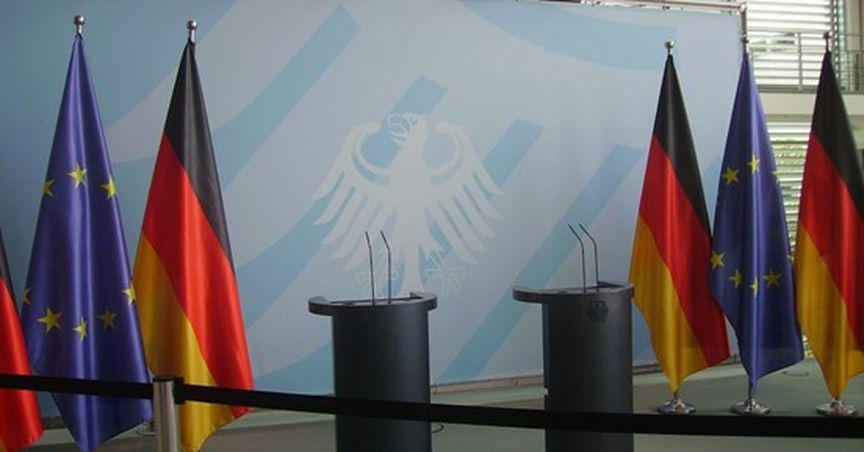Blockchain technology has recently attracted much interest as a safe and open record-keeping method. Even European lawmakers now consider the possible advantages of utilising blockchain technology to enhance their operations.
Some politicians in Europe are looking into using blockchain technology to improve efficiency and transparency in governmental procedures. Politicians expect to develop a safer and more reliable system for handling data and deals by utilising the unique characteristics of blockchain, such as its decentralised and immutable nature.
According to Belgium's digital minister in an exclusive interview with Coindesk, European politicians are considering the next move in the competition to draw a Web3 company. It could be a custom blockchain that honours privacy.
Europe to look into own blockchain
European lawmakers are interested in the possible uses of blockchain in industries like voting, identification authentication, and supply chain management. Politicians hope to increase public confidence in governmental organisations and build a more streamlined and effective system by utilising blockchain technology to enhance these procedures.
It is fascinating to see how blockchain technology can be used in new contexts and sectors as it develops. “Blockchain technology has a better chance than ever before of revolutionising how governments operate, which is the leading factor for consideration,” according to the developers at Bitcoineer Official.
According to a French-speaking moderate party MR member Mathieu Michel, a new "Europeum" blockchain could be used to track real estate ownership, driver's permits, and professional credentials while adhering to the strict regulation standards of the European Union.
Following a series of frauds and illegal incidents, Michel favours expanding distributed technology's use in public services and supply-chain management rather than just for financial purposes.
With its Markets in Crypto Assets regulation (MiCA), which establishes control and stability guidelines for crypto service providers, the EU has already made a line in the ground.
However, if Europe wishes to lead the world in blockchain, the narrative should continue, according to Michel. If voters approve in April 2023, the union could become the first significant authority in the world with a clear crypto framework.
MiCCA has mentioned that it “goes in the right direction, but it’s only a first step,” More consideration should be given to “a blockchain network constructed around the foundational values.”
Michel elaborated by saying: “Imagine you have Europeum – the blockchain that contains a whole series of conditions for protecting private life and so on, which are very transparent”. He uttered a phrase that sounds like a spin on the moniker of the Ethereum network. He suggested that instead of concentrating on the political quagmire of cryptocurrencies, it could concentrate on less delicate or abuse-prone areas, such as digitising official papers or academic credentials to be acknowledged throughout the union.
Sceptics against Europeum
It will be difficult, if possible, for Michel to convince lawmakers to change their minds about blockchain technology.
Lawmaker Michael Freilich expressed his "disappointment" with the Blockchain for Belgium plan in a parliamentary debate on March 8, 2023. He claimed that rather than moving right away, the government is waiting for suggestions that might come at the end of its term.
The right-wing New Flemish Alliance, the biggest gathering in the Federal Chamber but not one of the seven parties that make up the ruling coalition, was quoted as saying, "I was expecting more... the results will once again be nothing." Freilich is from this grouping and is from the New Flemish Alliance.
According to Michel, the EU's General Data Protection Regulation, which safeguards high European standards in data protection, is a resource the union can use to carve out its digital speciality. He now thinks that Web3 may need to represent them.
The Belgian tax system, which charges the highest labour taxes in the developed world and leaves the taxing of investment income in a useless, legally murky area, is one of the main grievances of the crypto community. In a sign that he has been engaged in these developments, Michel claims to be working on adjustments that will make it more transparent when and how virtual income should be taxed.
For blockchain entrepreneurs, such as Julien Romanetto of the Smurfs Society, the support from Michel is welcome, not least because policymakers have such a significant role to play in determining the ecosystem’s future. The Smurfs Society is a company involved in making non-fungible tokens (NFTs) of characters from the Belgian cartoon.
According to Romanetto, Europe has a significant role in the cryptocurrency industry. Regulation is necessary, but it shouldn't be restrictive. If there are too many regulations, investors will inevitably move to countries with less strict rules. Even though the government is taking action, Romanetto argued that more than simply creating a WhatsApp group would be required.
(Quotes have been translated from French)
European lawmakers are becoming more aware of the possible advantages of blockchain technology for streamlining administrative procedures. Politicians hope to develop a safer and more effective system for handling data and deals by utilising the unique characteristics of blockchain, such as its decentralisation, transparency, and immutability. As blockchain technology develops and grows, we'll see even more creative use cases for governmental use cases. And with European lawmakers leading the charge in this movement, there is a big chance that blockchain will play a significant role in determining how government operations will be conducted in the future. Despite privacy concerns, European lawmakers' acceptance of blockchain technology is an exciting development for the sector. It will significantly impact how governments and society operate in the future, which we will have to see play out before reporting more.



